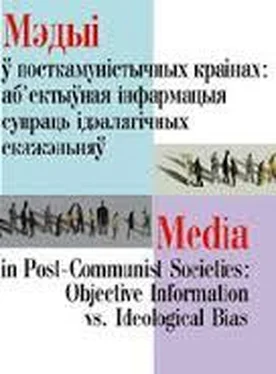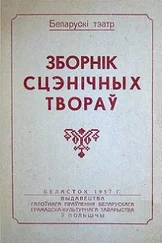The modern western civilization found a brilliant way out of this situation through a certain denationalization of some controlling functions. They, in fact, passed a considerable part of those functions to non-governmental structures. This, in my opinion, outstanding discovery of the second half of the twentieth century provided for both the intensification of progressive evolution and the strengthening of liberal and democratic tendencies. One can say even more pathetically: it brought democracy to a new quality level. It was this very process which, along with the massive introduction of electronic information systems, allowed the media to become what they currently are, and to head to their global future. It is important, however, to understand several essential aspects of this new situation.
Firstly, media are chiefly an intermediary amplifier, used by different social groups. In this regard, for instance the fourth estate is realized in close interaction with the fifth power: analysts. The latter circumstance plays a special role. A sharp strengthening of the modern mass media is connected with electronic systems of relaying and receiving information. In the epoch of print media, people could receive only the yesterday’s or the-day-before-yesterday’s news from foreign lands. Radio and especially television allowed them to feel themselves present at the site of events however faraway they are developing. Media have come from the past into the future and have existed in the real-time mode. Intensive interaction with analysts allowed the media to penetrate into the future. Viewers and readers are of course interested to know what happened earlier and what is happening now. But, their curiosity grow a hundred times stronger, if there appears a possibility of looking into tomorrow. What starts to work here is a certain dominant in our social and cultural genes, which allow us to design prompt scenarios of the future. This is our major specific advantage that turned Homo sapiens into “the king of nature”. And now, in the “choice pressure” epoch, this very skill helps us in our decision-making in the situation, when the social system has sharply become more complex.
Media engage with party and union leaders, scholars from different fields, business interests, human rights activists and religious figures. In other words, all those who want to make their contribution to the implementation of the controlling functions and to raise at the same time their rating in the political, scientific or any other market. Every concrete medium, of course, may head towards a certain self-sufficiency by including, say, serious analytical groups into their structure and/or reflecting constantly the views of a certain party. And what is more (many believe what is worse!), they head towards reflecting extremely transparently the views of their founders and/or permanent donors. However, the latter is especially likely to narrow the audience in our pluralistic century. The primitively designed suggestive machines lose a thinking consumer very quickly.
The problem of independence of the media is closely connected with the latter. Strictly speaking, I am talking about the independence of journalists, which can emerge only in a sufficiently developed market situation with a great number of competing mass media in place. In such situation the demand for good professionals appears to be higher than the one for the product by straightforward and importunate media owners. It is understandable that under the total state monopoly of, say, the Soviet type, independence is simply incompatible with the legal professional work. However, even in a non-monopoly situation, the state-owned media are, in my opinion, the atavism, which still exists in a number of highly developed countries in the form of state-owned television and radio channels. But, the problem here lies in the specific assessment of electronic media as an informational weapon, which I will touch upon in a greater detail below.
Unfortunately, the issue of state-owned media is often linked in this country with the problem of state financial support. It is assumed to be a common knowledge that when supporting this or another mass medium, the government is expected to have directly or indirectly at least some of the founder’s rights and influence decisively on the chief editor’s policy. However, this is nothing but a typical delusion of neo-Bolsheviks, who sincerely consider themselves as sponsors of not only the loyal media, but the whole nation, in general. In a civilized sense of the word, financial support to the media is a budget line in the framework of the law. Such situation looks justified, when an authoritative public commission, with bureaucrats playing only their assigned technical and bookkeeping roles, controls distribution of such financial support.
Finally, it is important to realize distinctly the dangers coming from the media. Simply speaking, it is important to understand that there should be general rules of how to handle weapons, including the informational one. The universe is organized in such a way that substance and energy parameters of the cudgel as the instrument of labor and as the combat arm are the same. One and the same carrier rocket is able to deliver a communication satellite on the orbit and a megaton-strong nuclear warhead onto the neighboring continent.
Media are the most powerful and already global suggestive generator. The human being’s psychological defense from suggestion (so to say, the anti-suggestive immunity) is not designed to endure such a powerful energy of influence. As for the pace of necessary adaptation, this question is poorly studied yet.
At the same time, the fact of psychological influence on human beings by information organized in a certain way is obvious. A deliberately composed news video row, for instance, can produce a remarkable influence on the mood and even health conditions of viewers.
The role of future-oriented programming — the influence on television audience (readership, too!) by well-prepared scenarios of developments of given events — is studied considerably less. The beaten-off example — an advertising sermon (all who believe in my words will be saved in paradise, yet those who doubt them will be doomed to judgment and eternal hell, etc.) — has still been attractive to a huge number of people, who sacrifice their property and put their faiths to religious commercial cheaters. There are certain problems with the modern products of think tanks, too. The mass audience is naturally not always prepared to perceive concentrated system scenarios. Roughly speaking, similarly not every human being can and is ready to cope with the influence from a powerful energy source. If we take into account, that with the increased pace of civilization development, the role of think tanks and the forecasts generated by them is swiftly increasing, while the media will demonstrate more and more actively the models of tomorrow’s world system, one can imagine that future-oriented programming represents one of the most serious challenges of the twenty-first century.
In its extremely narrow projection, the problem of informational weapon is linked with a quite sensitive topic of the freedom of speech in the field of personal or group criticism, or, if you wish, the freedom of critical word. In principle, one could use here a popular rule: “your freedom ends five inches off my nose’s tip”. However, the problem is that with the vulgar application of this rule, the media would not be possible at all to carry out its controlling and correcting functions, which are useful for the society. One should clearly distinguish here the critical statements against a subject as a physical entity and a subject as an institutionalized person. State and public figures, renowned writers, singers, etc. have the role of the latter in this case. In other words, they are those who have deliberately taken up a special social mission and who are associated, to a large extent, with a certain social institution. This measure represents the most serious problem. Formally, any criticism can produce a negative influence on personal image and lower its rating. Simply speaking, it can defame its honor and dignity. But, the lack of criticism is even more dangerous. And, the higher status a person has, the greater danger exists. The person also is expected to sacrifice a part of its private life. Such is the payment for being able to rise up the hierarchical scale. But, the question emerges: what part? How can one draw an optimal border, beyond which something completely private and absolutely untouchable begins. This problem will continue to keep lawyers busy for a long period of time, and the solution to this problem yet lies in the field of moral competence of each concrete journalist. It could be good to simply turn to the deep Christian idea: do not do anything to your neighbor what you would not want for yourself. But, it is very difficult to design a person, which stands far away from us. It is always easier to consider it to be an aggressive alien and deal with it in accordance with the reaction of glands and the sum of the fee. Of course, very few VIPs here are able not to use their whole arsenal of measures, including their own powers, for the purpose of allegedly necessary defense.
Читать дальше




![Невядома - Быць (або ня быць) сярэднеэўрапейцам [сучаснае польскае мысьленьне]](/books/49075/nevyadoma-byc-abo-nya-byc-syaredneeЎrapejcam-such-thumb.webp)




![Ная Геярова - Институт проклятых. Сияние лилии [litres]](/books/407702/naya-geyarova-institut-proklyatyh-siyanie-lilii-litr-thumb.webp)

